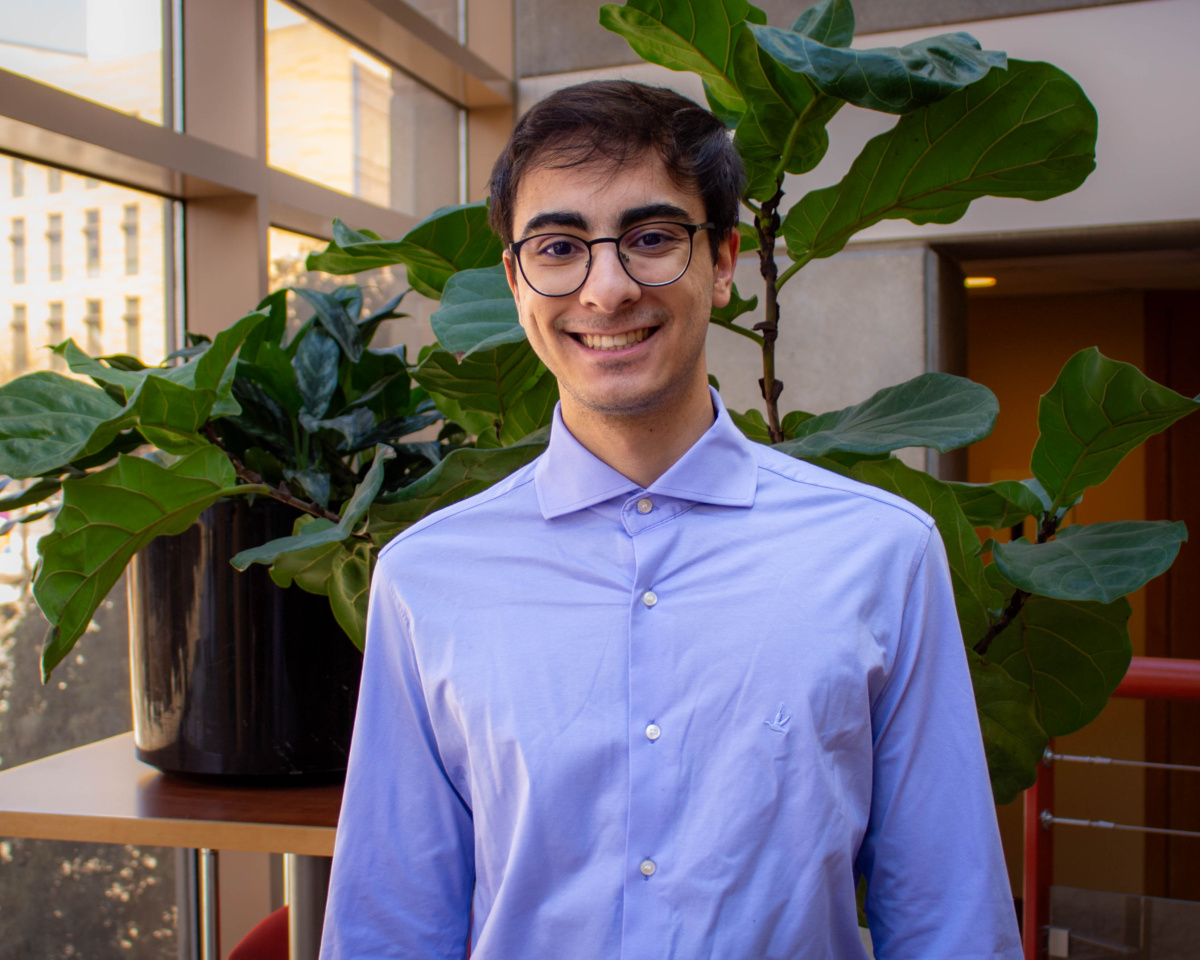
After moving more than 5,000 miles from home, Lucas Abreu Sernik x’26 is making his mark at the University of Wisconsin–Madison—both in and out of the classroom.
Originally from São Paulo, Brazil, Sernik was drawn to UW–Madison for its renowned Computer Sciences and Economics programs.
“Besides being one of the top public universities in the country, UW–Madison has great Computer Science and Economics departments in the College of Letters and Science. Since I was almost sure that I wanted to double major in CS and Econ while I was in high school, the choice was easy! I also wanted to experience a campus like Madison, with amazing scenery and distinct seasons,” says Sernik.
Sernik is one of over 4,500 international students in the College of Letters & Science who have traveled thousands of miles to pursue their education at UW–Madison. While the experience has been rewarding, he acknowledges the challenges of leaving home.
“It is not easy to be an international student. You will leave your family, friends, and culture behind and embrace a brand-new society and environment. However, the contact with people from different countries that are as excited to be at a top-notch American university is great,” says Sernik.
Finding Purpose Through Research
Beyond the classroom, Sernik has found a strong sense of community and purpose through research. He serves as an undergraduate research assistant with Smart Farm Hub, a research group in the Animal Science department that develops computer-based solutions to help farmers. His role is crucial—turning faculty research into real-world applications.
Currently, he is working on integrating acoustic and computer vision systems to monitor dairy calf health, as well as developing ways to deliver satellite and climate data to researchers in a more accessible way.
His research experience has been transformative, shaping his academic journey and inspiring him to consider graduate studies. “I would definitely recommend participating in research as an undergraduate. Besides learning a lot about your field of interest in the process, you get to meet amazing people that were once undergraduates and are now respected researchers in UW –Madison,” says Sernik. “Getting to know these people, how they got into research and why they chose to get their PhD has been great for making the daunting decision of whether or not to apply to grad school, because I now have more information and the perspective of others that made this choice.”
Engaging in Campus Life
Sernik is deeply engaged in campus life. As a board member of BRASA, the Brazilian Student Association, he helps connect fellow Brazilian students and create a sense of home away from home.
He is also a peer mentor in the Computer Sciences department, assisting students in the Introduction to Operating Systems course.
“It has been a great opportunity to connect with other CS undergraduate students and help them with one of the most exciting classes offered by the department. It is also great to get to know the professors and PhD students and have the ‘behind the curtains’ view of an undergraduate course, seeing how everything is organized and planned,” says Sernik.
An Interdisciplinary Approach to Learning
Sernik’s passion for learning extends across disciplines. In addition to majoring in Computer Sciences, he is also pursuing a second major in Economics—a decision that reflects his broad academic interests and career aspirations.
“When choosing my majors, I looked for two subjects that could somehow easily complement each other both in academia and industry,” says Sernik. “It is really valuable to explore different subjects while in college. This is the time and the place to learn about many things that are being produced and experimented with, with the opportunity to learn from some of the best faculty in the country.”
With 49% of CDIS students pursuing double majors, Sernik is part of a growing group of students who value an interdisciplinary education.
Leaving a Lasting Mark
Sernik’s connection to UW–Madison goes beyond academics and research—he and his family have also chosen to give back. Through The Badger Effect, a campaign celebrating the power of collective giving, they will have their names inscribed on a tile in the donor wall at Morgridge Hall.
“After two and a half years studying at UW–Madison, me and my family wanted to contribute and leave our mark in the new building. Me and my parents can’t wait to see the new building and all the new and cozy environments that it will offer,” says Sernik.
As Sernik continues his journey at UW–Madison, he is not only expanding his own horizons—he is helping build a stronger, more connected global community on campus.
Learn more about The Badger Effect.